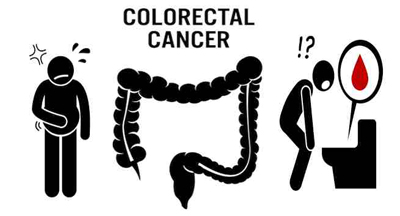 Oct 27: Paving the way for a fast, noninvasive method that could lead to the early diagnosis of colorectal cancer, researchers have identified a suite of molecules in faeces that signifies the presence of precancerous polyps. ‘The exciting part is being able to see differences in the stool,’ said one of the researchers Herbert Hill, Professor at Washington State University. ‘This could lead to a noninvasive, more comprehensive early-warning detection method for colorectal cancer, but a lot of research needs to be done before it can be actually realised,’ Hill noted. Colorectal cancer is the second most common cancer worldwide. Nearly 1.4 million new cases were diagnosed in 2012, according to the World Cancer Research Fund International. Though early detection is key to successful treatment, most screening tests are limited in diagnostic capability or ease of application. Colonoscopy, for example, is a known lifesaver but is costly and unappealing to many people who might otherwise undergo testing. More people would be willing to provide a stool sample than undergo a biopsy through a colonoscope, Michael Williams from Washington State University, noted.
Oct 27: Paving the way for a fast, noninvasive method that could lead to the early diagnosis of colorectal cancer, researchers have identified a suite of molecules in faeces that signifies the presence of precancerous polyps. ‘The exciting part is being able to see differences in the stool,’ said one of the researchers Herbert Hill, Professor at Washington State University. ‘This could lead to a noninvasive, more comprehensive early-warning detection method for colorectal cancer, but a lot of research needs to be done before it can be actually realised,’ Hill noted. Colorectal cancer is the second most common cancer worldwide. Nearly 1.4 million new cases were diagnosed in 2012, according to the World Cancer Research Fund International. Though early detection is key to successful treatment, most screening tests are limited in diagnostic capability or ease of application. Colonoscopy, for example, is a known lifesaver but is costly and unappealing to many people who might otherwise undergo testing. More people would be willing to provide a stool sample than undergo a biopsy through a colonoscope, Michael Williams from Washington State University, noted.
In addition, colonoscopes can only extend a limited distance into the large intestine, potentially missing some polyps. ‘With our new test, it could be possible to diagnose cancer occurring throughout the entire colon,’ he said. The researchers discovered the molecular fingerprint for colon cancer using a technology called ion mobility-mass spectrometry. They first identified metabolic products from normal colon tissue in both humans and mice. The scientists then compared this normal profile to that found in cancerous colon tissues from humans and research mice with polyps in their colons that mimic those in humans. In both cases, the scientists found that colon cancer caused significant changes in fat metabolism, especially for lipids and fatty acids. These abnormalities created a molecular fingerprint that was similar in humans and mice, said Hill. Next, the researchers examined droppings from transgenic and control mice to see if the molecular fingerprint could be found in feces as well. Here is how vitamin D helps to fight colorectal cancer.





Comments
Add new comment